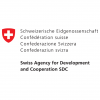Executive Summary
A TV interview is an interview that is broadcasted on television, with the aim of providing information to viewers linked to water and sanitation issues.
What kinds of interviews are there?
- Interviews about current events: obtain information and explain news events.
- Interviews with opinion-makers: obtain the opinion of the interviewee and examine it critically. This might be the opinion of a government representative or an environmental activist.
- Interviews with persons of interest: obtain information from interesting individuals such as experts or people affected by a situation related to water or sanitation issues. This his can be entertaining or emotional.
In practice, these various formats often intersect.
How does one prepare for a TV interview?
The interview topic is to be defined by the journalist—that is, he or she decides what information is needed. The topic should not be too general. It is important to research the topic and/or the interviewee thoroughly beforehand. Thorough research will lead to good suggestions for questions to be asked. Think carefully what kind of statement you need for your contribution.
The topic of the interview should be relevant to listeners.
How is a TV interview constructed?
The length of an interview depends on the kind of broadcast and format. A standard TV interview lasts between 2:30 and 4:30 minutes.
An interview begins with an introduction, or lead-in, during which the interviewee is introduced; this includes his or her name and function.
Most of the interview consists of questions and answers. The interview is finished with closing remarks or a wrap-up.
A good interviewer is flexible, reacting to the answers and coming up with critical questions that follow on from answers, all without losing sight of the ultimate goal or angle of the interview.
How does the interviewer work?
Good preparation and research will dictate the nature of the questions and what is to be asked.
The questions should be short and to the point.
By posing questions that ask for specific information or answers—such as “yes” or “no,” the interviewer should get concrete, verifiable answers. If the questions are more open-ended, the interviewee is likely to answer in greater detail. A good interview contains a mixture of both kinds of questions. Avoid suggestive questions and try to search eye contact to the interviewee.
You should also prepare yourself, if possible, for the personality of your interview partner. Is it a politician, marketing manager, scientist or a "normal" person? Is he / she routine in talking, in giving statements or likely to be nervous. Based on the information you have about the interviewee, create a pleasant atmosphere for the interview.
The interviewee
Some questions to answer: Is the interviewee the right person to answer the questions the interviewer wants to ask? Is the interviewee the person with the responsibilities or simply answering questions on behalf of others (for instance, as a spokesperson)?
Does the interviewee have an agenda to push? For instance, politicians and businesspeople often have a point they try and get across regardless of what questions are being asked.
How does the interviewer speak?
The interviewer uses normal language and speech. He should not be competing with the interviewee for airtime—this tends to be at the expense of the viewer and detracts from how easy the interview is to understand.
The interviewer should also be able to explain any jargon or any complex, insider-style information to the viewers.
Checklist
- Is the topic well defined and does it have relevance to the listeners? What is the ultimate goal of the interview?
- Is the interviewee the right person to answer these questions?
- Has the interviewee’s name and function been properly introduced?
- Have the questions been thoroughly researched?
- Does the lead-in introduce the topic in an easy-to-understand and interesting way? What about the closing remarks?
- Has special attention been placed on the first and last questions, which are particularly important?
- Will the interview follow a dramatic arc of some kind?
- Is the interviewer well aware of the interviewee’s own agenda, if there is one?
- Have any relevant technical details been explained or agreed upon (such as timing, connections) before the interview begins?
Shortcuts to Journalism: The Basics of Print, Online and Broadcast Reporting
When basic questions about journalism come up, this handbook, written and produced by Media in Cooperation and Transition (MICT), provides clear, brief and precise answers. Shortcuts to Journalism isn’t just for journalists – it’s also helpful for non-journalists. Download the English version here or the Arabic version here.
Schmidt, E., Tirok, M. and Bösch, M. (2016): Shortcuts to Journalism: The Basics of Print, Online and Broadcast Reporting. Berlin, Germany: Media in Cooperation and Transition gGmbH PDF

